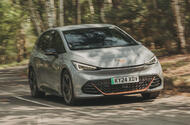We’ve named it the best and most fun EV. Does it really have no flaws? Let’s find out
Why we’re running it: To see if its award-winning reputation survives real-world use
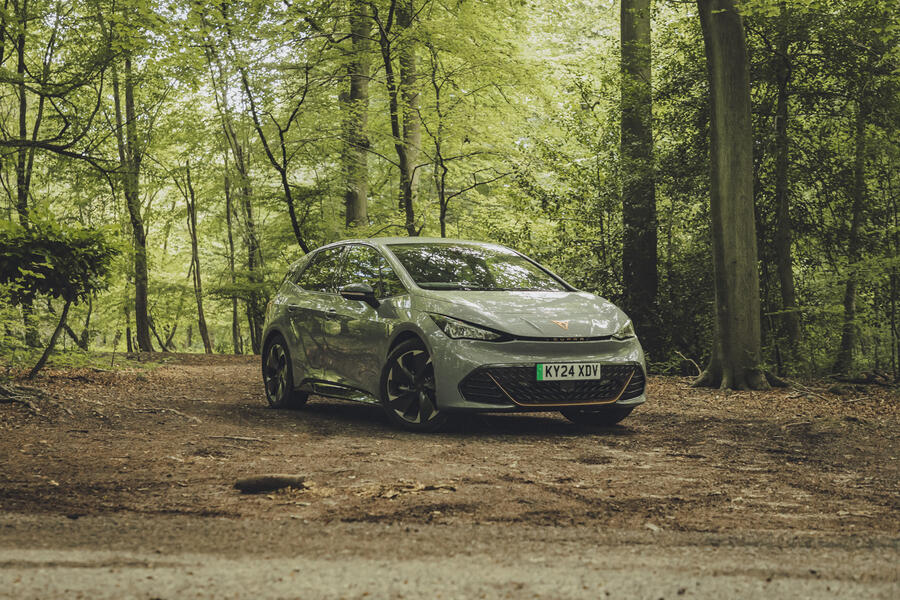
Life with a Cupra Born: Month 1
Welcoming the Born to the fleet
The EV market is still dominated by SUVs, but there's at least growing competition in the family hatchback class, even if those underfloor batteries mean they do sit a little higher than combustion cars. And the Cupra Born is already standing out from the crowd, with its rear-wheel-drive layout and the promise of fun handling to match traditionally strong EV performance.
Indeed, I was keen to get straight onto interesting roads in the Born, because there's still a lot of hype surrounding it three years after launch. The Spaniard was named Best Electric Car at this year's Autocar Awards, after beating all its rivals to also win our Best Fun EV and Best Affordable EV crowns in the preceding months. We've run a Born on our long-term fleet before, but this time we'll be holding it to even higher standards.
I've been spending some time taking in its design, too. The Born is by no means a rarity in my local area, yet it always catches my eye on the road. I think its bronze exterior design elements look great, and while I probably would have opted for Aurora Blue metallic paint over this rather joyless Vapour Grey, the car still looks the part.
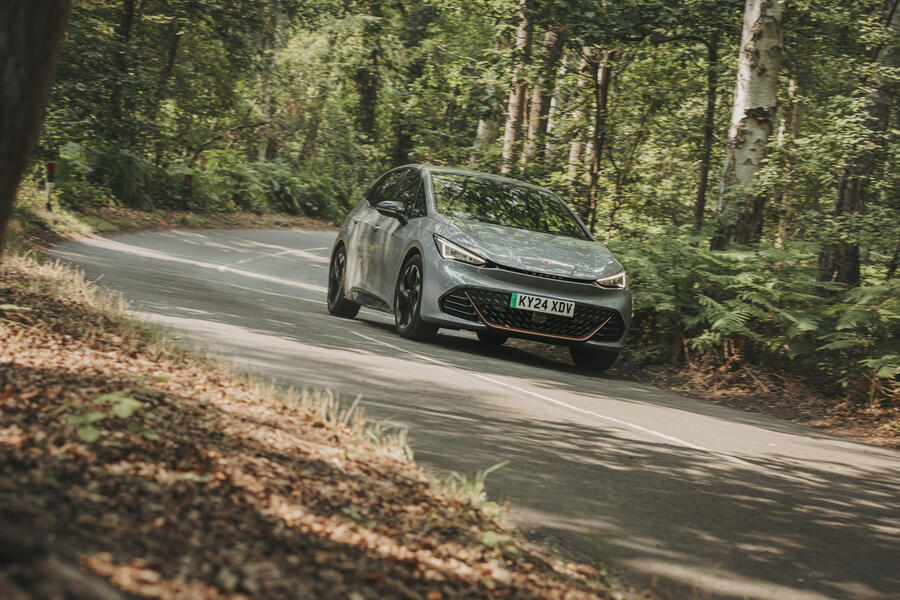
Some may look at the Born's sharp design and dramatic detailing and think it's simply a brash version of the Volkswagen ID 3, but there's more to this sporty hatchback than just a shared platform. While the most potent ID 3 comes with 204bhp and travels from 0-62mph in 7.6sec, the warmest standard Born gets 227bhp and hits the same mark in 6.6sec. That's not quite proper hot hatch territory (that's reserved for the upcoming 322bhp Born VZ), but as far as I'm concerned, it's the ideal level of power for daily driving.
So far, the Born has shown flashes of its fun nature. It’s brilliantly agile and the car’s rear-wheel-drive layout makes it a hoot in the corners, yet it’s also comfortable. There’s a driving mode for every situation, too: Range, Comfort, Individual, Performance and Cupra.
The last of those is the hottest and is easily selected via a conveniently placed button on the steering wheel. It sharpens the accelerator response and adjusts the strength of the regenerative braking for an all-round more engaging drive.
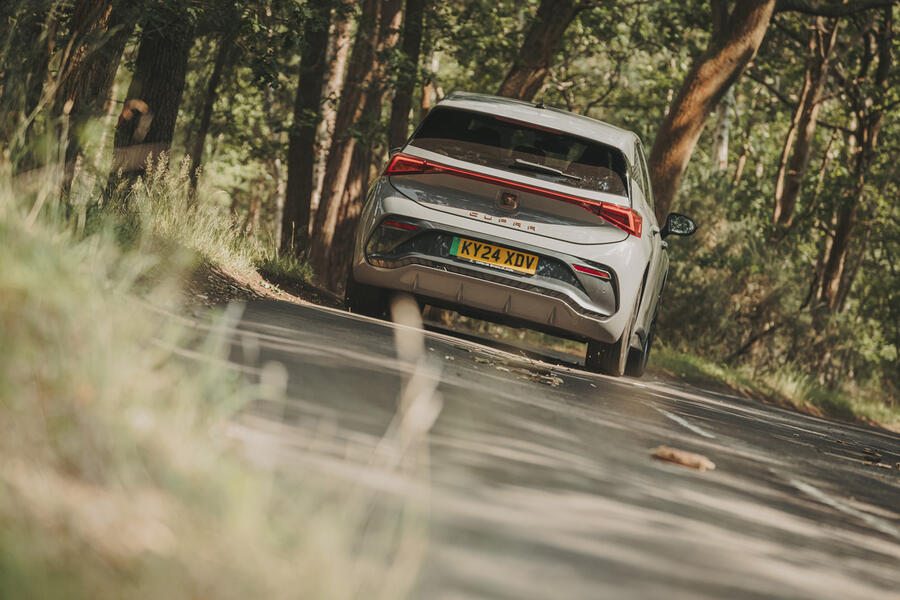
My car is fitted with the 58kWh battery, which gives it an official range of 262 miles, but there’s also a larger 77kWh pack that’s good for 342 miles. It can accept charge at a maximum rate of 120kW (this rises to 135kW for the 77kWh battery), which is enough to get it from 5-80% capacity in 36 minutes.
Prices start at just £35,495 for entry-level V1 trim, whose standard equipment includes LED headlights, a reversing camera, dual-zone climate control, 18in wheels and a heated, leather-wrapped steering wheel.
My one-rung-up V2 car is priced from £37,265 and features 19in wheels, heated front seats, an augmented reality head-up display and, to really seal the deal, heated washer nozzles. That’s a good level of kit, and apart from wireless phone charging, it’s pretty much all that I would be looking for in a new car.
On first impressions, the Born’s cabin is both accommodating and well put together, but there are some frustrations too. As is the Volkswagen Group way nowadays, there are few buttons around the cabin, with Cupra having opted for touchpads and haptic sensors, as Volkswagen did for the ID 3.
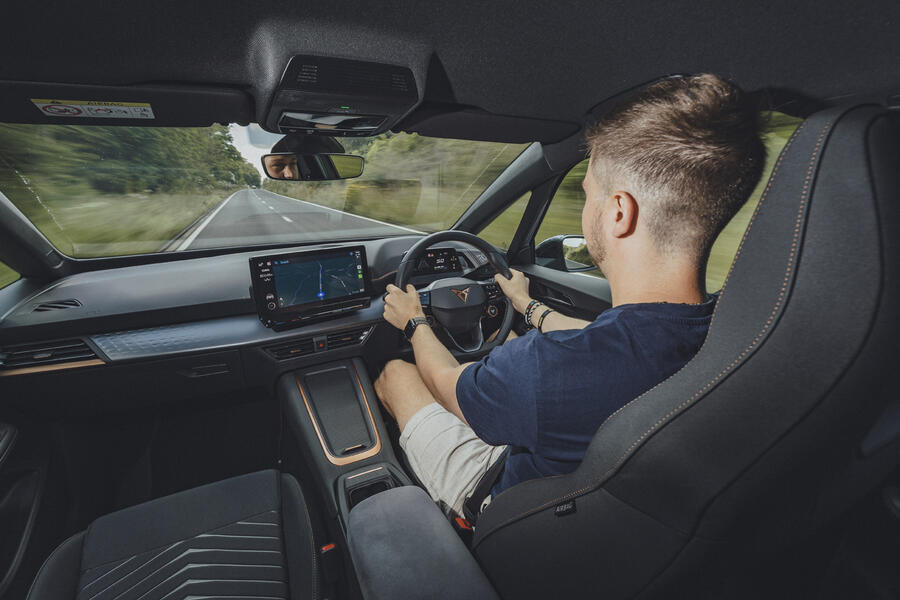
Multimedia switches such as the audio volume controller are positioned on the steering wheel, while other functions are located on a touchpad just behind it, or on the doors. I know from my experience running a Volkswagen ID 4 that these can be incredibly irritating to use, often not responding to inputs or doing so far too slowly.
The same can be said for the infotainment system, which in the Born consists of a mind-bogglingly slow-acting, centrally positioned 12in touchscreen and a far more useful 5.3in digital information display that sits atop the steering column.
I will go into greater detail in forthcoming reports, but issues that I’ve already witnessed include random wireless Apple CarPlay disconnections, ignored inputs, a struggling frame rate and an unresponsive blank screen that requires a reset to resolve.
Aside from that, the cabin is a very practical space, with a lot of storage room for drinks in the centre console. When the Born was launched, it was streets ahead of the ID 3 in terms of perceived interior quality, with plush, microfibre-like materials and soft-touch plastics (although the recent update of the ID 3 closed the gap by introducing more premium materials).
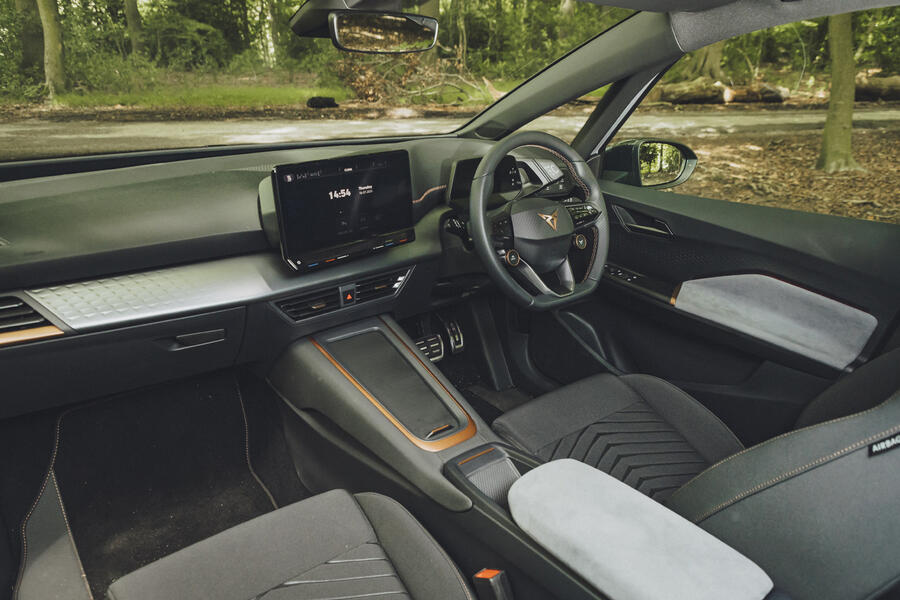
There’s plenty of space in the back too now, and our road testers measured just as much leg room as there is in the BMW 5 Series. Boot space, meanwhile, is 385 litres, which is more than in the MG 4 EV, and increases to 1267 litres with the rear seats folded down. While I have yet to fill the Born with family, my girlfriend is no fan of its sports seats.
As a shorter passenger, she is not able to comfortably rest her head, due to the big hole halfway up the headrest. They’re non-adjustable, so it’s a fair complaint, especially as she’s bashing her head on hard plastic over more severe bumps.
A few inches taller, I myself am waiting to get stuck into life with the Born. Those who have road tested the car have raved about its driving dynamics; let’s see what else it has to offer long-term custodians.
Second Opinion
There’s no denying its dynamic competence or commendable utility credentials, but as the halo product of a notionally sporting brand, the Born feels wanting for a sense of occasion. Copper flourishes can only do so much. Look what Hyundai has done for the Ioniq 5 N (p46). I will be interested to see if Jack finds it more ‘special’ every day than the related Volkswagen ID 3.
Felix PageÂ
Back to the top
Cupra Born 58kWh V2Â specification
Specs: Price New £37,265 Price as tested £37,265 Options None
Test Data: Engine Single rear-mounted electric motor, 58kWh battery Power 227bhp Torque 229lb ft Kerb weight 1840kg Top speed 99mph 0-62mph 6.6sec Fuel economy 3.9mpkWh CO2 0g/km Faults Infotainment glitches Expenses None
Back to the top

